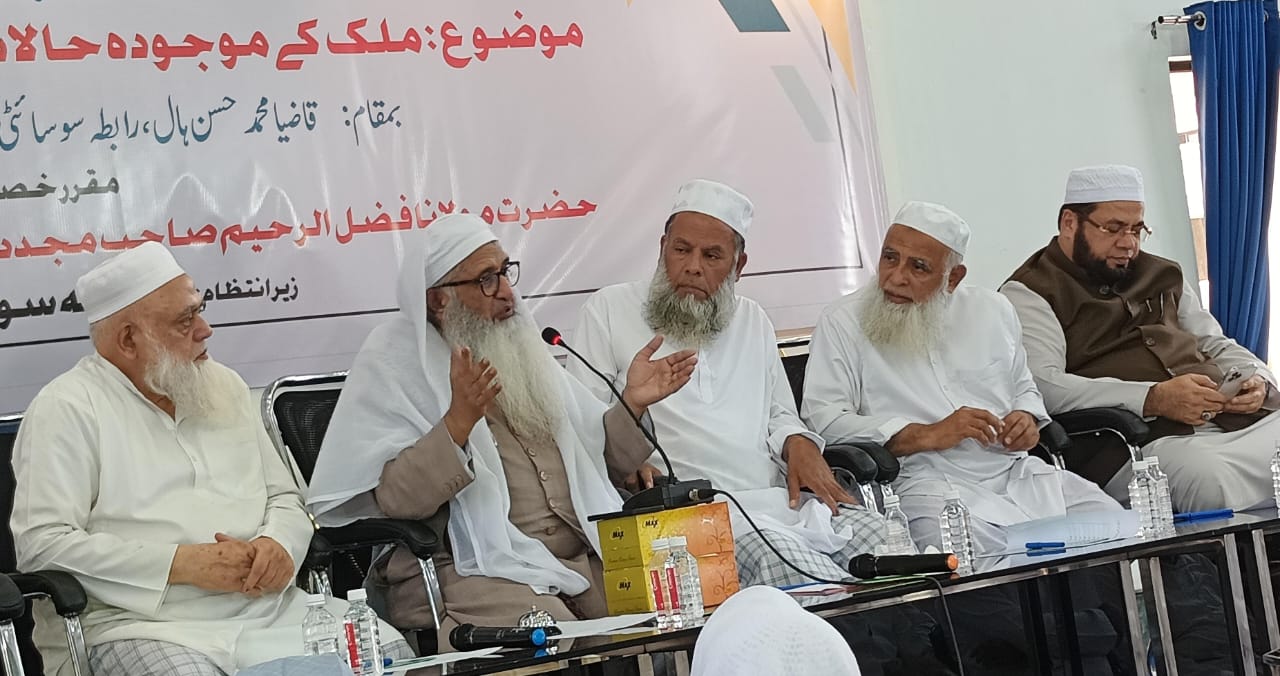
Bhatkal: India is a democratic country, and the principle of democracy dictates that whoever has the population holds an equal stake in the nation. Therefore, according to the population ratio, all sectors of the country should have an equitable share in administration. As per rules and regulations, if a population is 18%, it should have 18% representation in Parliament, IAS, IPS, Police Department, Judiciary, Media, and all other departments. Maulana Fazlur Rahim Mujaddidi, the founder and president of Crescent Academy for Civil Service Exam (New Delhi), emphasized this during his address.
Addressing various representatives of social and educational organizations gathered at Rabita Hall in Bhatkal on Sunday, Maulana expressed regret that while Muslims constitute 18% of India's population, they are lagging behind in every sector. Maulana Fazlur-Rahim Mujaddidi, who is also the General Secretary of the All India Muslim Personal Law Board, the largest and most renowned Muslim organization in India, highlighted a concerning statistic: communities with smaller populations, such as those with 7%, have a disproportionately higher representation of 37% in civil services, while communities with populations of only 1% and 2%, they have 4% and 5% representation in civil services. However, despite their significant population, Muslims hold only around 4% representation in civil services. Maulana stated that smaller communities occupy much of the administration, whereas Muslims, despite their population, are scarcely represented, leading to injustices and widespread neglect.
Mujaddidi clarified that if any community is underrepresented in various departments and administrations relative to its population, it leads to injustice. He stressed the importance of increasing Muslim representation, particularly in the Judiciary, civil services, and media, to prevent worsening conditions. He highlighted that a community's representation in all departments based on its population ensures justice for that community.
Addressing officials from various educational and social institutions of Bhatkal, Murdeswar, Manki, Valki and neighboring areas, Maulana Mujaddidi expressed concern that neglecting this representation gap would perpetuate injustice. He urged Muslims and Muslim institutions to prioritize addressing this issue, emphasizing that while other communities are gaining dominance in civil services and other fields, Muslims are not showing any interest in this field.
Bhatkal Qazis Maulana Abdul Rab Khatib Nadvi and Maulana Khawaja Moinuddin Akrami Madani, along with All India Muslim Personal Law Board members Maulana Abdul Aleem Qasmi and Maulana Ilyas Jakti Nadvi, were present on the dais. Habibullah Mohtisham, a member of the Rabita society, hosted the program, with General Secretary Atiqur Rahman Muniri presiding over the function and extending the vote of thanks.
